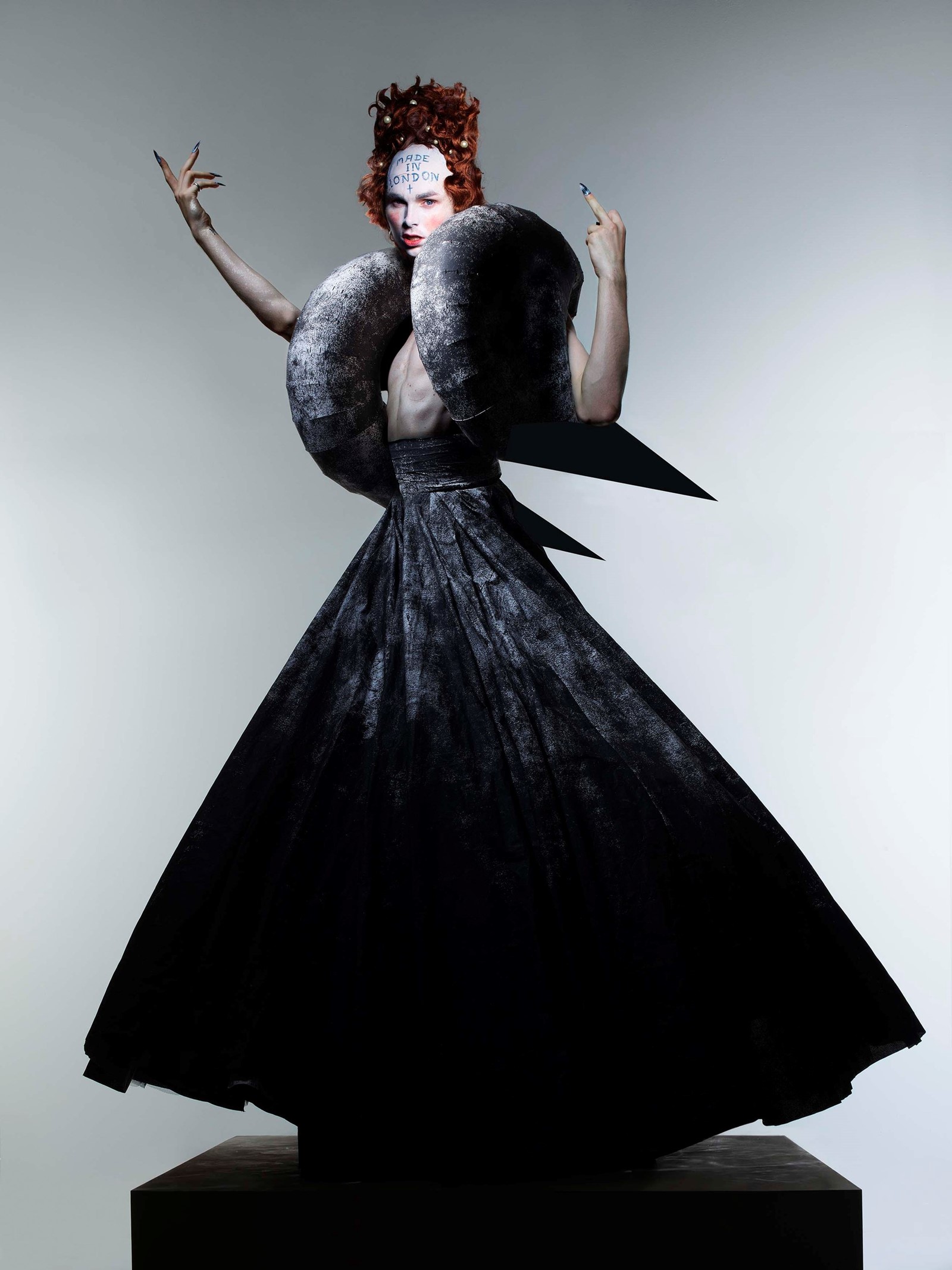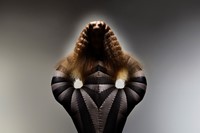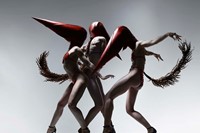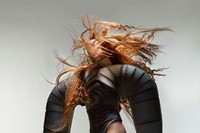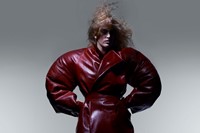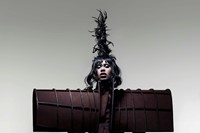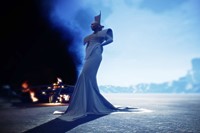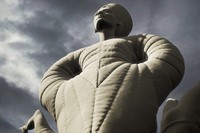This article is published as part of a series of Designer Interviews, where we’re speaking to some of the industry’s most crucial voices about this current – and highly unique – moment in fashion history.
Gareth Pugh has always been known for ruffling feathers and pushing buttons. Ever since he burst onto the London stage in 2004 – a graduate of Central Saint Martins’ star-making MA course – with surreal, club kid-inspired designs, it was clear that he was a natural leader of fashion’s avant garde.
Over a decade on, Pugh remains an iconoclast. After taking a break from London Fashion Week for a couple of seasons, he has returned for Spring/Summer 2021 with a new collection in the form of a non-profit visual concept album. Titled The Reconstruction, the project comprises 13 stills and short films shot by Nick Knight and Jon Emmony (starring an ensemble cast including the likes of Rina Sawayama, Matthew Ball, and Sakeema Crook), a feature-length documentary that goes behind the scenes of making the work, and an exhibition of the collection showing at Christie’s. The project is raising money for Refuge, which helps women and children affected by domestic violence.
“We owed it to ourselves and to fashion in general to be part of a conversation that feels a little bit sad at the moment,” says Pugh. “London Fashion Week feels like it could come and go without much fanfare. So it requires people to do things bigger and better than we’ve ever done before. People need something that they can be hopeful about right now.” Here, as part of AnOther’s Designer Interviews series, we have a frank conversation with Pugh about the way that fashion has been reacting to the current climate – and the uncertainty of its future.
Hannah Tindle: For S/S18 you screened a film at the BFI in lieu of a runway show. In light of the current season, does it feel like you had the gift of foresight?
Gareth Pugh: Actually, we started doing things off the runway almost a decade ago in 2009 with a film we produced with Ruth Hogben. I was showing in Paris at the time, and you’re only ever listed on the main schedule if you have a physical presentation and I had to tell a lot of white lies to the Chambre Syndicale. But Didier Grombach was the president of the organisation at the time, and he was obviously quite a trailblazer in his time, introducing a new way of working to the Paris schedule early on with the likes of Claude Montana, Theirry Mugler, and Rei Kawakubo. Luckily, he came to the presentation and left with a smile on his face. We also showed a film with Kristen McMenamy for S/S11. But it’s amazing how much push back from a lot of others we got from doing this at the time. And now, in 2020, everyone’s like ‘let’s make a film!’
HT: It’s the ‘new normal’ this season. How do you think that’s going to work out for everyone?
GP: I think it’s difficult for some designers. For example, if your clothes don’t lend themselves to film that well, it might be a difficult thing to work around. We’re lucky enough that our clothes work very well on screen and with moving imagery. Fashion films are obviously something that we like to harness to tell a story. I often equate a live fashion show with a tennis match; a lot of back and forth. It’s quite formulaic. With a fashion film, you can portray something bigger than the clothes. It’s much more democratic, too – more people are able to see it.
HT: The behind-the-scenes documentary produced as part of The Reconstruction offers a real window into your process. What was your thinking behind making this?
GP: What we wanted to do was to create a film that documented us getting our hands dirty at the studio, mixed with high-fashion moments created by Nick Knight and Jon Emmony. It’s a little bit like pulling back the curtain on the Wizard of Oz, I guess, inviting people to see what really goes on. It’s quite exposing, but we’re comfortable with that. This film runs alongside the stills by Nick in the exhibition at Christie’s right in the middle of the room. I like the idea of referencing the gritty making process within such a ‘hallowed’ art space.
HT: What were other conversations that you had during the making of The Reconstruction?
GP: In February, Nick Knight asked me to do a screening of Cabaret at SHOWstudio, which is one of my favourite films. That evening, I asked Nick if we would maybe talk about doing something together for the next fashion week. It was time for me to return to the schedule, after securing my trademark back from Rick Owens and my Italian partners. Not that I was held back much before, but this was going to be the first time in ten years that I was going to have complete freedom.
HT: And then lockdown hit ...
GP: Yes and we had to close everything down, including our studio, and I was suddenly stuck in my small London flat. This really highlighted to me how much I love the studio and making with my hands. Also, seeing how other people in fashion were reacting to what was going on around us, it all felt a little bit sad. I just thought, we, as in fashion as a whole, can do better than that. Designers are an adaptable bunch, and what the world needs right now in particular is creative problem solvers.
HT: At the beginning of the documentary, you have included a clip of Nina Simone saying her famous quote: “It’s an artist’s duty to reflect the times in which we live.” How do you think fashion can reflect the times we live authentically and honestly?
GP: Fashion exists within this strange space. It exists within a space where people understand it in a way that they can’t necessarily do with an artist’s work because it’s wearable. There’s a relatability to it. I think fashion is one of those mediums that can very quickly and very succinctly connect to the times in which we live. Although it can be slow at changing its actual bureaucratic structure, the creative content can. We should be able to move with the times in a very nimble way.
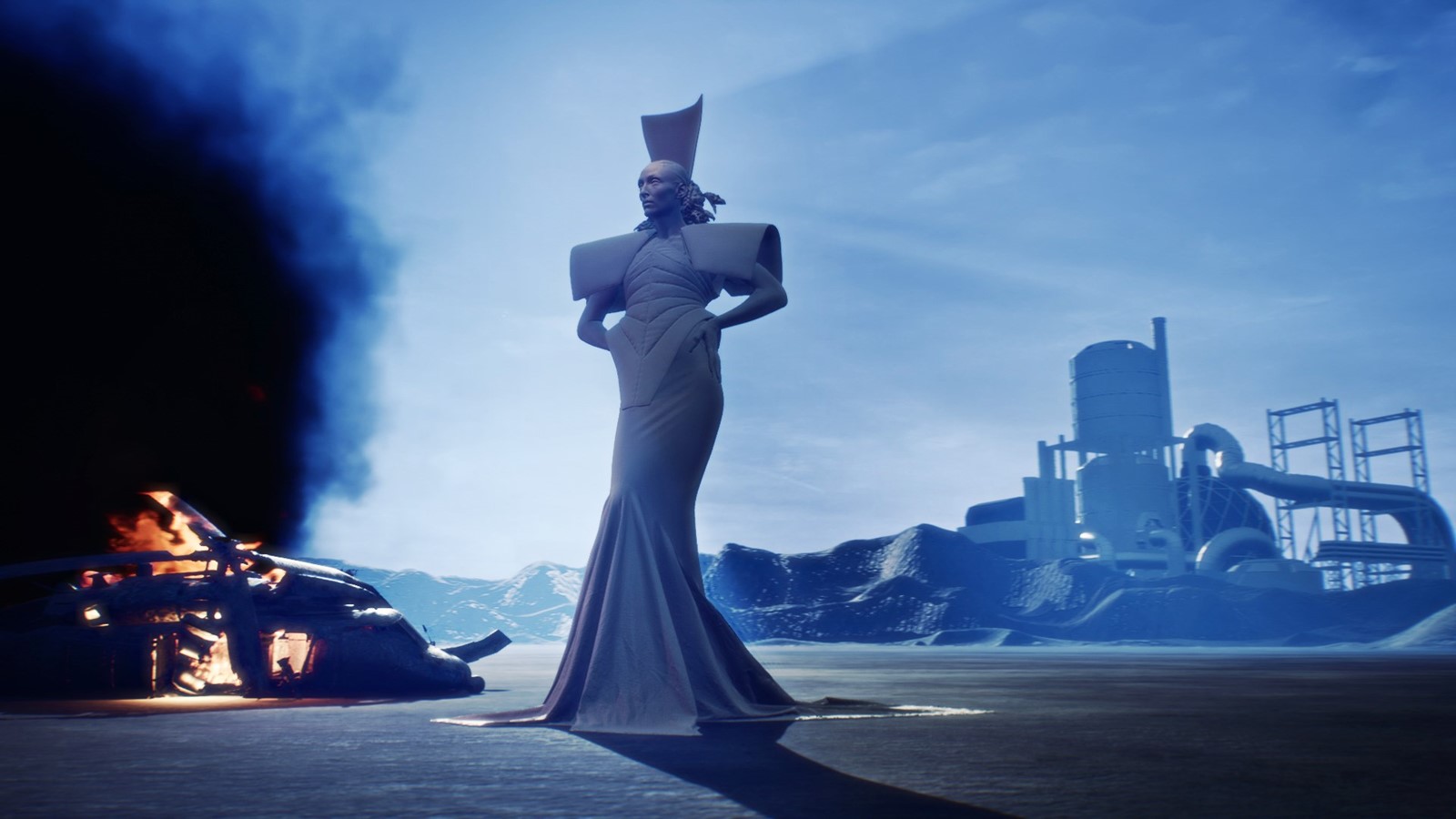
HT: Do you hope to see up-and-coming designers respond to the changing times by engaging with more experimental show formats?
GP: Yes, definitely. Putting on a show costs a huge amount of money and effort when perhaps they don’t have that at their disposal, and often young designers are doing something that is dancing to the beat of somebody else’s drum. But right now, there are no rules in a way, and there are no right and wrong answers to how you show your work. I’m sure that this is a nightmare for those responsible for the long-held structures in place, but it’s a great time for designers to take back control. Often people haven’t had space to even change how they want to communicate their work. The fashion show is a set structure and everyone knows how it rolls. But that’s been taken away, which is really exciting for the new guard.
HT: The worry is that everything will just return to the way it was as soon as it can. What are your thoughts on this?
GP: There’s much talk of change and it’s a concern that people are just saying what everyone wants to hear right now. But, I was speaking to Nick about this and he really does get a sense that it isn’t just chat and that people are quite invested in it. Giorgio Armani wrote an amazing open letter in April that reflected this. With an Italian designer with a huge commercial hold in the industry to say things need to change and calling people of his stature to follow suit, I am hopeful. We’re glad to be part of that conversation, too, but there’s so much left for us to do.
HT: So what does the future hold for you and the Gareth Pugh studio?
GP: Fashion is always my first love, but we’re thinking of taking a bit of a sidestep from it. The reason why we stepped away from fashion in the first place is that we wanted to stretch our legs creatively. It also feels reckless at the moment to work so commercially, when retail and fashion production is on its knees. Which is why all the proceeds from The Reconstruction are going to Refuge. In regards to what next? Who knows. We don’t have a plan.
The Reconstruction is at Christie’s London until September 19, 2020
Key looks from the collection have been re-imagined in a series of T-shirts designed by Pugh in collaboration with emerging designer Melissa Mehrtens. Sold in exclusive partnership with HIT + RUN, with all proceeds going to Refuge UK, these T-shirts are available to shop here
